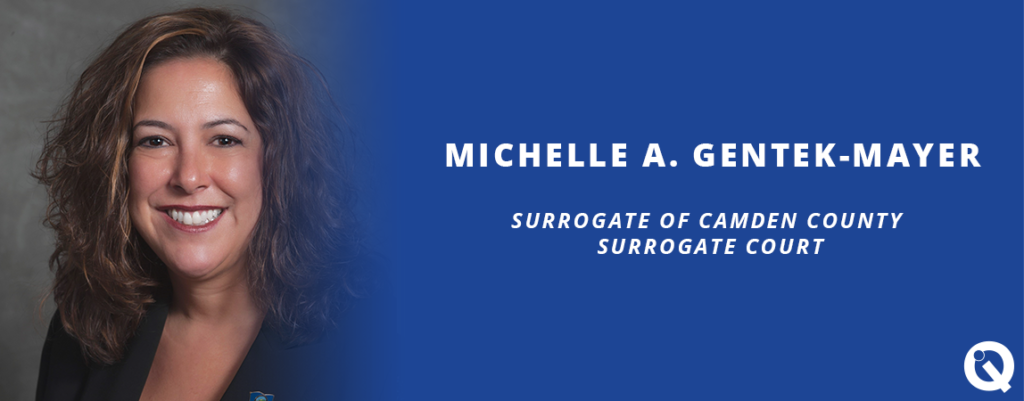Michelle A. Gentek-Mayer is the Surrogate of Camden County Surrogate Court. She works closely with the Quality Institute’s Conversation of Your Life (COYL) and was the first surrogate in the state to integrate COYL programming into community outreach and education.
You’ve been involved with our Conversation of Your Life (COYL) program since its launch in 2015. What inspired you to include our COYL programming in your community outreach?
When I first became surrogate in 2015, I was already going out and doing talks to promote our county’s free clinic to help people create wills, living wills, and power of attorney. Then my husband, who was the Mayor of Gloucester township, told me about Conversation of Your Life. I sat in on one of the programs the township was hosting, and I knew I needed to partner with COYL. I am already going all around the county and COYL provides so much valuable information. I thought we would be stronger together.
How do you integrate advanced care planning conversations into your programs and services for older adults?
In my program, there is a whole section just for living wills and I do a PowerPoint presentation. That’s where we have the COYL conversation. It adds a great deal of information about living wills and advance directives. And then I provide follow-up that if you are 60 or older or have a disability you can get a free will, living will, and power of attorney. It’s a completely free service. An attorney helps people fill out everything and it’s witnessed and notarized right there. I should add that if you need a complex will, you may need your own attorney.
How can other County Surrogates and community leaders create similar programs in their counties?
Most of the surrogates are already going out and doing talks. We can connect them with a representative for COYL who has spoken with surrogates. What I do is invite any community leader or any surrogate to come and see our program — and I’ll help guide them through how the partnership works because I think we all should be doing this. Once people see the program, they understand its value. You’re hearing what people’s concerns are. They are sharing things that are meaningful to them.
Can you provide some examples of what people share in these educational sessions?
Some people say, “I’m not going to be here anyway. Why should I care?” My response is, “Because we believe that you have the right to make your decisions during life and beyond. These documents speak for you when you can’t speak for yourself.” And then it clicks, especially with regards to advance directives. If people cannot speak for themselves, this document outlines their wishes — and we believe their wishes should be fulfilled.
These days we also have divided families; we have blended families; we have estranged family members. That does create problems if your documents are not in order.
We like to ask a question beyond people’s professional lives. Can you tell us a little about where we might find you on a day away from work?
On my rare downtime, I especially love to be with my friends and family — and I enjoy the beach as well as antiquing and visiting yard sales. I enjoy the hunt to find other people’s treasures.

